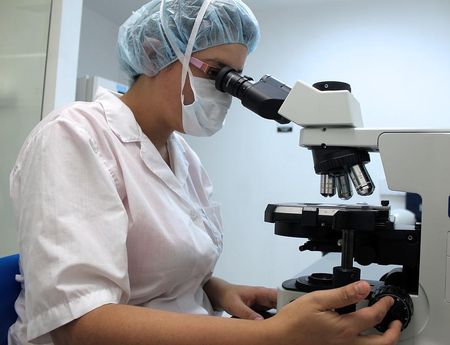
10 projects with a total budget of nearly 10 million zlotys will be carried out by researchers from Italy, Germany, France, Great Britain, Canada and India, who will come to the Jagiellonian University as part of the POLONEZ BIS call. The results of the first edition of the call have just been published by the National Science Centre.
POLONEZ BIS is a fellowship programme for experienced researchers, co-funded by the European Commission and the Polish National Science Centre under the prestigious Marie Skłodowska-Curie COFUND grant. In three calls to be announced in 2021 and 2022, the programme will recruit 120 experienced researchers from all over the world. They will move to Poland for 24 months to conduct their basic research in public or private institutions of their choice. The programme guarantees successful Fellows a full time employment and an additional grant for the implementation of their own projects in a research field of their choice. The research component will be complemented by a series of attractive workshops on transferable skills, and an opportunity to cooperate with startups and non-governmental organisations during short-term secondments.
In total, 151 proposals were submitted in the recently concluded first call under POLONEZ BIS programme. Following the eligibility check and evaluation by international experts and reviewers, 50 projects were recommended for funding. The call’s success rate is 33.1%. NCN will fund 27 (54%) projects in science and technology, 14 (28%) in humanities and social sciences and 9 (18%) in life sciences.
The following 10 projects will be carried out by research teams at the Jagiellonian University:
- Dr Elena Popa (University of Greewich, London): Values, Trust, and Decision Making in Public Health, JU Faculty of Philosophy,
- Dr Francesco Testini (University of Milan): Why we punish? A genealogical account, JU Faculty of Philosophy,
- Dr Leszek Dolega (University of Liverpool): Adjustment of shopping and consumption spaces to the ‘new era of retail’ following the global Covid-19 pandemic: the case of Poland and UK, JU Faculty of Geography and Geology,
- Dr Rouillé Louis (Academy of Rouen): A new defense of antirealism in the philosophy of fiction, Jagiellonian Research Centre for
Law, Language and Philosophy, - Dr inż. Mieszko Wilk (Trinity College, Dublinie): Regulation of SLPI-IL-17 signaling pathway during respiratory infections and vaccination, JU Faculty of Biophysics, Biochemistry and Biotechnology,
- Dr Iwona Bielska (Queen’s University): Establishing evidence-based strategic recommendations for patient-centred health care options for individuals experiencing high use of the emergency department, JU MC Faculty of Medicine,
- Dr Philipp Kunde (University of Hamburg): (Anti)Classification and invariants in dynamics, JU Faculty of Mathematic and Computer Science,
- Dr Manuele Filaci (University of Genoa): Lorentzian spectral geometry and its application in physics, JU Faculty of Physics, Astronomy and Applied Computer Science,
- Dr Biswaranjan Das Mohapatra (Ravenshaw University): Bridging the Understanding between Oxygen Electrocatalysis Activity and Electrode Stability in Acidic Medium: An Approach Towards Designing Low-cost PEM Fuel cells and Water Electrolyzers, JU Faculty of Chemistry,
- Dr Nabi Ullah (Royal Society of Chemistry): Multimetal chalcogenide nanoparticles supported on metals selenide nanoflowers as electrocatalysts for overall water splitting, JU Faculty of Chemistry.
Full list of winners is available on the National Science Centre website.





